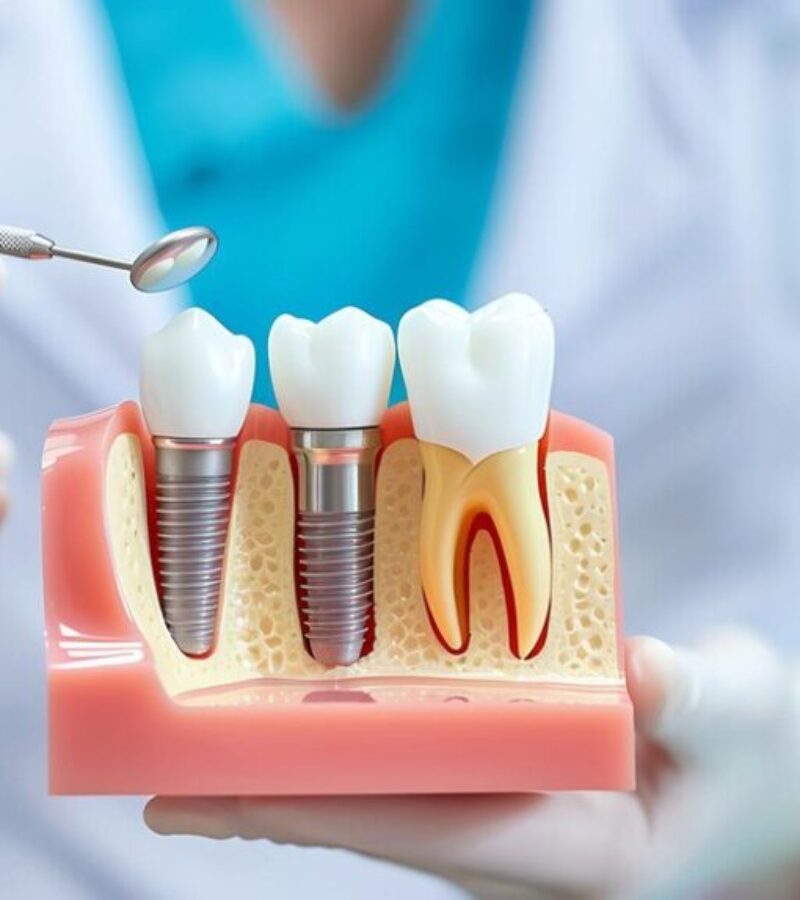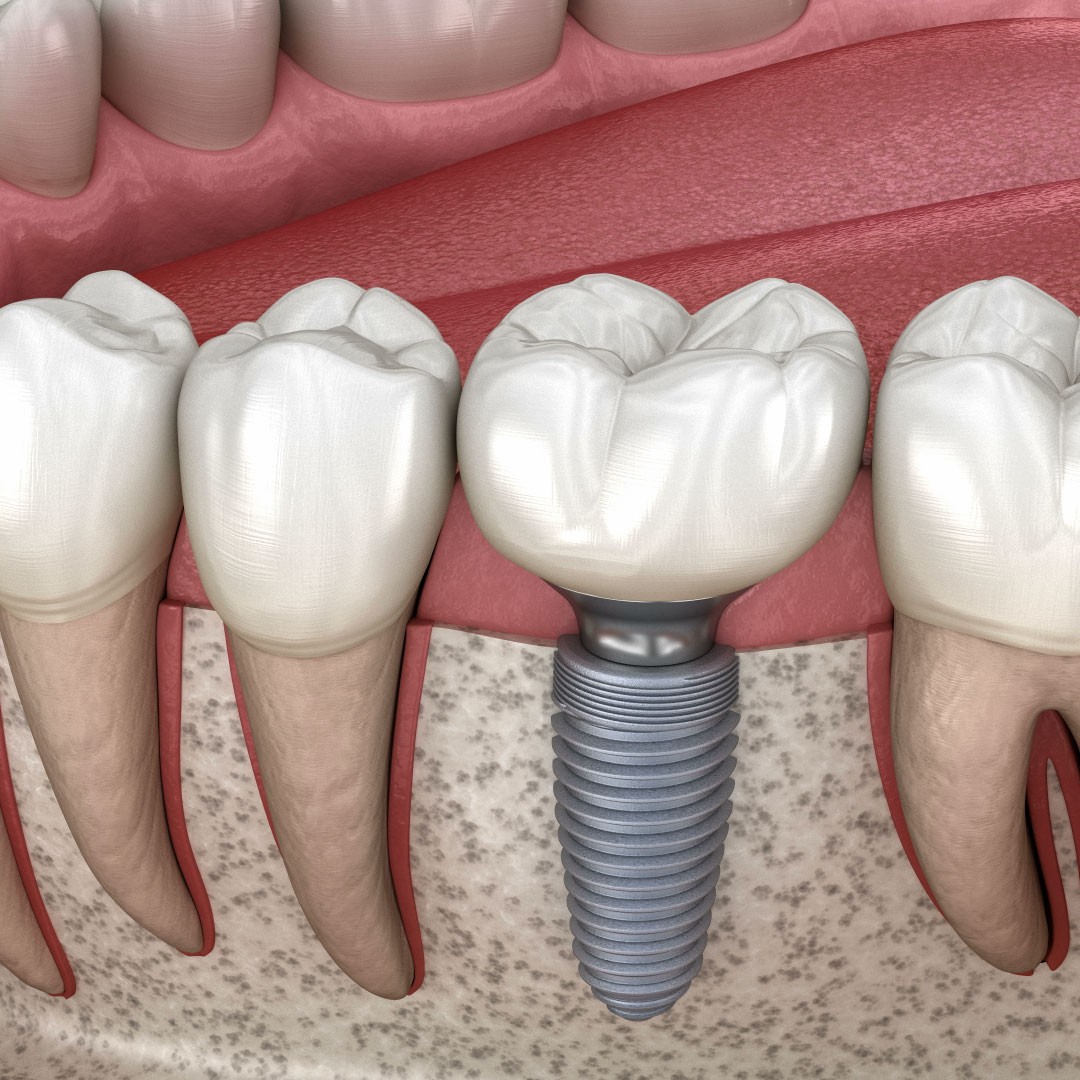Shopping cart
Subscribe to out newsletter today to receive latest news administrate cost effective for tactical data.
2478 Street City Ohio 90255
- Phone: 77 999 833 29
- Email: info@tinypearls.in
Subscribe to out newsletter today to receive latest news administrate cost effective for tactical data.
2478 Street City Ohio 90255
Dental implants are one of the most advanced and reliable solutions for replacing missing teeth. Unlike removable dentures or traditional bridges, implants are surgically placed into the jawbone to act as artificial tooth roots. They are made of titanium or zirconia—biocompatible materials that fuse naturally with the bone through a process called osseointegration. Once the implant integrates with the bone, a crown, bridge, or denture is fixed on top, restoring the look, feel, and function of natural teeth.
Dental implants have transformed modern dentistry because they don’t just replace the visible tooth, but also the root structure. This ensures stability, durability, and stimulation of the jawbone, preventing the bone loss that usually follows tooth extraction. Implants can replace a single tooth, multiple teeth, or even a full arch, depending on a patient’s needs.
Patients often describe implants as the closest replacement to their natural teeth. They look realistic, feel secure, and allow people to eat, speak, and smile confidently without worrying about shifting or slipping, which can happen with traditional dentures.


There are several compelling reasons why dental implants are considered the gold standard for tooth replacement.
Unlike bridges or dentures, implants can last a lifetime when cared for properly. They fuse with the bone, becoming a permanent part of the body.
Implants mimic natural teeth in both form and function. They look identical to surrounding teeth and feel stable when chewing or speaking.
When teeth are missing, the underlying jawbone begins to shrink due to lack of stimulation. Implants prevent bone loss by transmitting chewing forces to the jaw, keeping the bone healthy and maintaining facial aesthetics.
Bridges require support from neighboring teeth, which involves grinding them down for crowns. Implants, however, stand independently and do not affect adjacent healthy teeth.
Patients with implants often report renewed confidence, better chewing efficiency, improved speech, and the freedom to enjoy foods that are difficult with dentures.
In short, dental implants not only restore missing teeth but also preserve oral health, prevent further complications, and enhance overall well-being.
Dental implants are an excellent option for most people who have lost teeth due to decay, trauma, gum disease, or other reasons. Here are some situations where implants are strongly recommended:
Who is a Candidate for Implants?
Most adults with good general and oral health are suitable candidates. Healthy gums and adequate bone density are essential for successful implantation. Patients with uncontrolled diabetes, heavy smoking habits, or certain systemic conditions may require additional evaluation before proceeding. In cases of insufficient bone, procedures like bone grafting or sinus lifts may be performed to prepare the site.
Timely consultation with a dentist or implant specialist helps determine suitability and create a customized treatment plan.
Despite their success, dental implants are often misunderstood. Let’s clear some common myths:
Clearing these misconceptions helps patients feel confident and assured about choosing implants as a safe and predictable solution.
Dental implants are more than just tooth replacements—they are life-changing solutions that restore function, confidence, and long-term oral health. By mimicking natural teeth in both structure and appearance, implants prevent bone loss, protect neighboring teeth, and provide stability unmatched by dentures or bridges.
If you are missing teeth or struggling with removable dentures, implants offer a reliable and permanent alternative. With the right diagnosis, advanced techniques, and proper care, implants can serve you for a lifetime.
Choosing dental implants is not just about filling a gap; it’s about investing in your smile, your confidence, and your overall well-being.